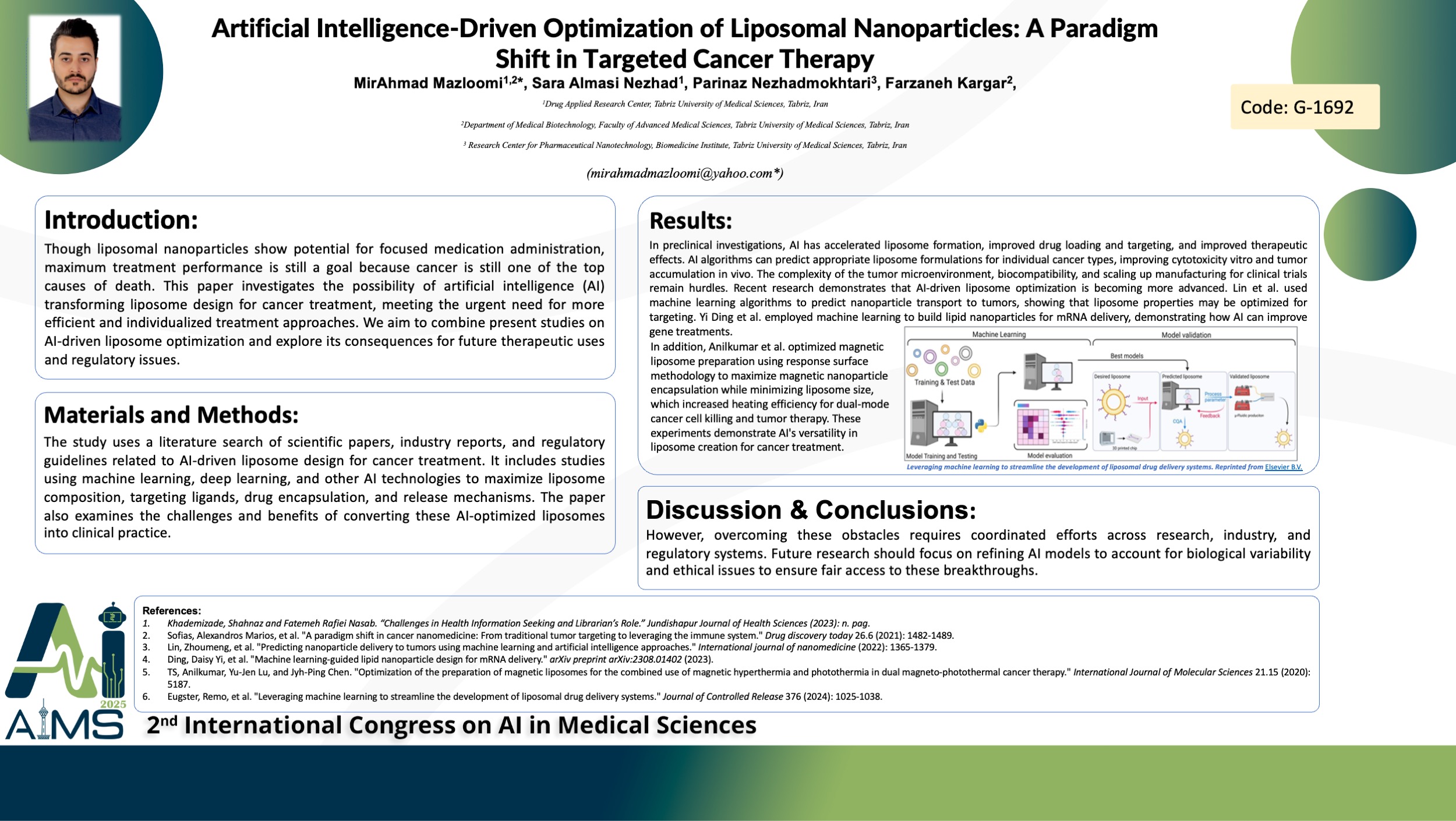بهینهسازی نانوذرات لیپوزومی مبتنی بر هوش مصنوعی: تغییر الگو ها در درمان هدفمند سرطان
کد: G-1692
نویسندگان: MirAhmad Mazloomi * ℗, سارا الماسی نژاد, پریناز نژاد مختاری, فرزانه کارگر
زمان بندی: زمان بندی نشده!
برچسب: کشف و طراحی دارو
دانلود: دانلود پوستر
خلاصه مقاله:
خلاصه مقاله
Background : Though liposomal nanoparticles show potential for focused medication administration, maximum treatment performance is still a goal because cancer is still one of the top causes of death. This paper investigates the possibility of artificial intelligence (AI) transforming liposome design for cancer treatment, meeting the urgent need for more efficient and individualized treatment approaches. We aim to combine present studies on AI-driven liposome optimization and explore its consequences for future therapeutic uses and regulatory issues. Method: The study uses a literature search of scientific papers, industry reports, and regulatory guidelines related to AI-driven liposome design for cancer treatment. It includes studies using machine learning, deep learning, and other AI technologies to maximize liposome composition, targeting ligands, drug encapsulation, and release mechanisms. The paper also examines the challenges and benefits of converting these AI-optimized liposomes into clinical practice. Results: In preclinical investigations, AI has accelerated liposome formation, improved drug loading and targeting, and improved therapeutic effects. AI algorithms can predict appropriate liposome formulations for individual cancer types, improving cytotoxicity vitro and tumor accumulation in vivo. The complexity of the tumor microenvironment, biocompatibility, and scaling up manufacturing for clinical trials remain hurdles. Recent research demonstrates that AI-driven liposome optimization is becoming more advanced. Lin et al. used machine learning algorithms to predict nanoparticle transport to tumors, showing that liposome properties may be optimized for targeting. Yi Ding et al. employed machine learning to build lipid nanoparticles for mRNA delivery, demonstrating how AI can improve gene treatments. In addition, Anilkumar et al. optimized magnetic liposome preparation using response surface methodology to maximize magnetic nanoparticle encapsulation while minimizing liposome size, which increased heating efficiency for dual-mode cancer cell killing and tumor therapy. These experiments demonstrate AI's versatility in liposome creation for cancer treatment. Conclusion: However, overcoming these obstacles requires coordinated efforts across research, industry, and regulatory systems. Future research should focus on refining AI models to account for biological variability and ethical issues to ensure fair access to these breakthroughs.
کلمات کلیدی
Liposomes, Nanoparticles, Drug Delivery, Machine Learning,
